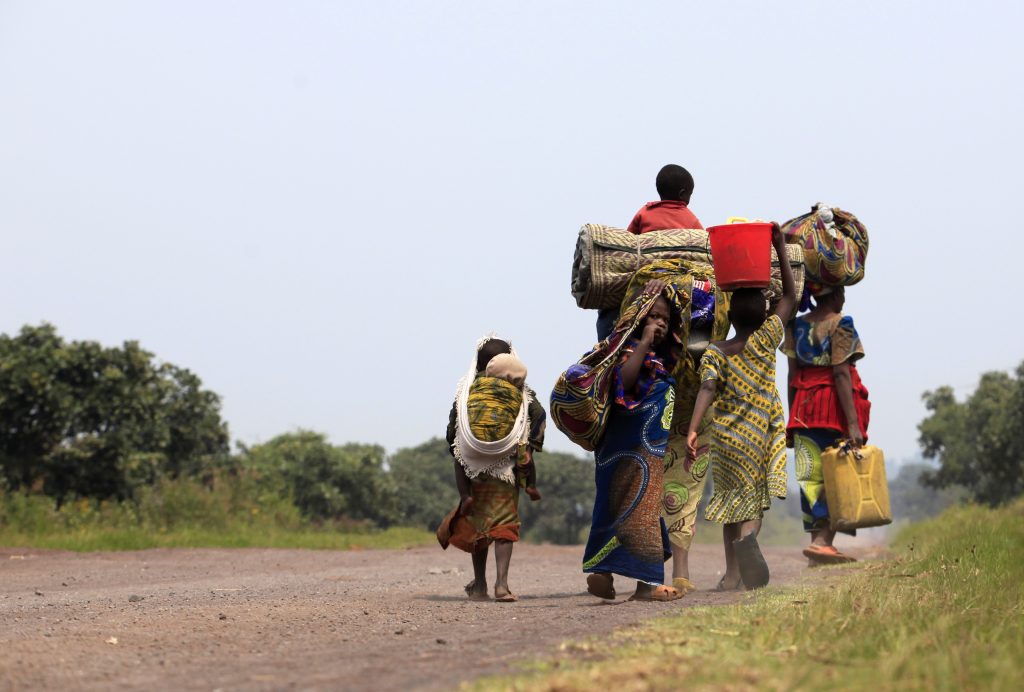By Akanimo Sampson
Seven years after entering into force, Femi Gbajabiamila, Speaker of the House of Representatives, has said that the Green Chamber of Nigeria’s bicameral Legislature will now follow the “necessary steps’’ to domesticate the Kampala Convention on Internally Displaced Persons (IDPs), which will go a long way in addressing their plight in the country.
The Convention which was formerly, the African Union Convention for the Protection and Assistance of IDPs in Africa, is a treaty of the African Union that addresses internal displacement caused by armed conflict, natural disasters and large-scale development projects in Africa.
The Convention was adopted in October 2009. As of 2016 it has been signed by 40 and ratified by 25 of the 54 member states of the African Union. The Convention entered into force on December 6, 2012, 30 days after its ratification by the 15th state.
Article 5(4) specifically establishes state responsibilities for the protection and assistance of internally displaced persons, whose displacement is the result of ‘’natural or human-made disasters, including climate change.’’
Gbajabiamila also said the House will collaborate with the International Committee on Red Cross (ICRC) to ameliorate the sufferings of IDPs in the country.
United Nations refugee agency, the United Nations High Commissioner for Refugees (UNHCR) in 2019, reported that the Nigerian refugee crisis was going into its sixth year. Since violent attacks of the Islamist group, Boko Haram, started to spill over the country’s North-Eastern frontier in 2014, Cameroon, Chad and Niger have been drawn into what has become a devastating regional conflict.
To date, the Lake Chad Basin region is grappling with a complex humanitarian emergency. Over 3.3 million people have been displaced, including over 2.5 million IDPs in volatile North-Eastern Nigeria, over 550,000 IDPs in Cameroon, Chad and Niger and 240,000 refugees in the four countries.
According to the UN refugee agency, “the crisis has been exacerbated by conflict-induced food insecurity and severe malnutrition, which have risen to critical levels in all four countries. Despite the efforts of governments and humanitarian aid in 2019, some 3.5 million people remain food insecure in the Lake Chad Basin region and will depend on assistance.’’
The Speaker of the House of Reps was, however, speaking when he hosted a team of the ICRC led by the head of the organisation in Nigeria, Eloi Fillion, on Thursday in Abuja, Nigeria’s capital city.
According to Gbajabiamila, “I want to thank you for the role, particularly in the North-East. If not for you, I don’t know how we’ll describe the situation. We’re more than happy to collaborate with you. I’m glad you’re working with my Special Assistant on IDPs. He has a lot of zeal for the work. We always look forward to collaboration such as this.”
While responding to the request of the ICRC team for the House to domesticate the Geneva Convention and the Kampala Convention, Gbajabiamila said there was a need to have more detail on the former, and also raised a concern that a situation where some international conventions demand that organisations such as ICRC could provide assistance to both soldiers and insurgents at the same time will not augur well for the country.
On the Kampala Convention, he said, “Nigeria is a signatory. If the House domesticates it, I think the different states have to do the same. We’ll try and see how we can get it domesticated.
You can give us the list of some of those treaties that need domestication in Nigeria. We have a committee on treaties, agreements and protocols because we know there are a lot of them. You can send us the list so that we can work on them.’’
Earlier, Fillion had aid the ICRC would want to collaborate with the House in a number of areas to achieve its mandate in Nigeria, calling for the domestication of the Geneva Convention and the Kampala Convention on IDPs.
While pointing out that the international community has given ICRC specific mandate to deliver humanitarian service, claiming that they are independent and neutral in carrying out their mandate, he equally added that the ICRC will organise a workshop where all issues relating to its activities and what it seeks to achieve would be thrashed, seeking for the cooperation of the House to execute that.

